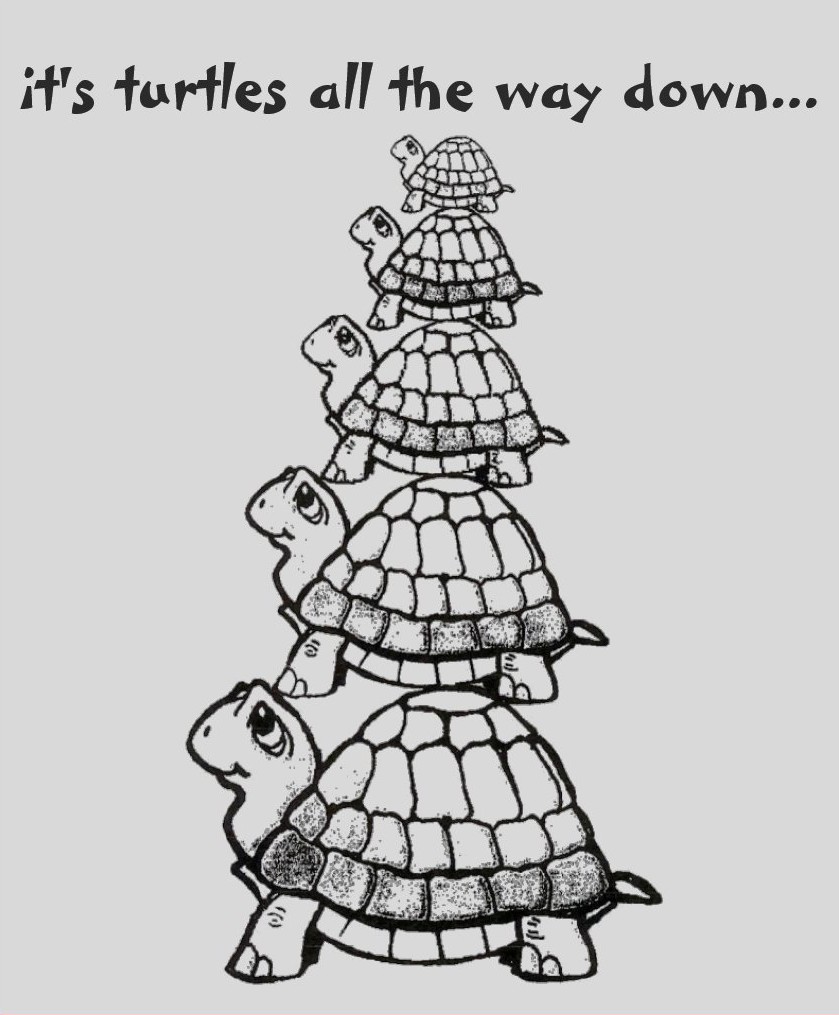This tree is very small and it is growing out of the top of a steel culvert.

Day: February 1, 2022
Caveat: Increasingly vague turtles, farther down
I read weird things online, almost every day.
Today, I read an article by Physics and Computer Science blogger, Scott Aaronson, in which he asks: Why is the universe quantum-mechanical?
He requests answers from the public. I wouldn’t dare to presume to participate – I lack knowledge. Nevertheless, I found myself rather quickly forming a thoroughly amateur opinion about it.
My own hypothesis:
If the universe is in fact finite (by definition presumably), its quantum nature simply makes sense. It’s a kind of requirement. A universe governed by classical mechanics suffers a problem of essentially infinite potential precision – what level of precision is necessary to produce all the universe as it is? It’s unbounded, and regresses to infinity at ever-smaller scales. But in a quantum-mechanical universe, there is an upper bound on the amount of information required to “run” it (to run the universe, that is). That’s because only examined values need to be precise – otherwise there are just fuzzy probabilities.
There’s the old joke about the scientist who asks some traditionalist guru about their supposed notion that the world is on the back of a giant turtle. The guru insists, preemptively: “Don’t even ask. It’s turtles all the way down.”
Instead of “turtles all the way down” it’s more like “turtles receding into the distance, until they are only specks, and which when examined through a lens, are really only just specks, or rather, they look like turtles to the best of our ability to resolve the image, but that ability suffers constraints due to the quality of the lens.” The turtles farther down are less precise, until, at some very distant point, they are only notional turtles at best. Consequently, though the “number” of turtles is definitionally infinite, the amount of memory required to store all the turtles is finite, because each one is less precise than the one above it.
I think the universe being quantum-mechanical in nature solves a similar problem that arises in classical mechanics.
Out of 500+ comments, Scott Aaronson succeeds in rebutting my amateur answer somewhere around comment #5:
Responding to comment #2 (which in some broad respects resembles mine), he writes, “Any answer along those lines, it seems to me, immediately crashes and burns once we realize that passing to wavefunctions, far from decreasing our classical simulation cost, has exponentially increased it—the fact famously exploited by quantum computation.”
I’m not sure it completely makes sense. It depends on whether you assume that all the collapsing wave functions must necessarily be collapsing. Isn’t there something in QM that says that the wave functions only collapse when someone looks? Isn’t most of the universe not being looked at, most of the time? Schrödinger’s litter box, and all that…

![]()
Caveat: Poem #2011 “Detail”
ㅁ space and time unfolding operating not quite like clockwork more like a blind person reading out each moment's steps in a tactile way across knots tied in tiny strings made of ether
